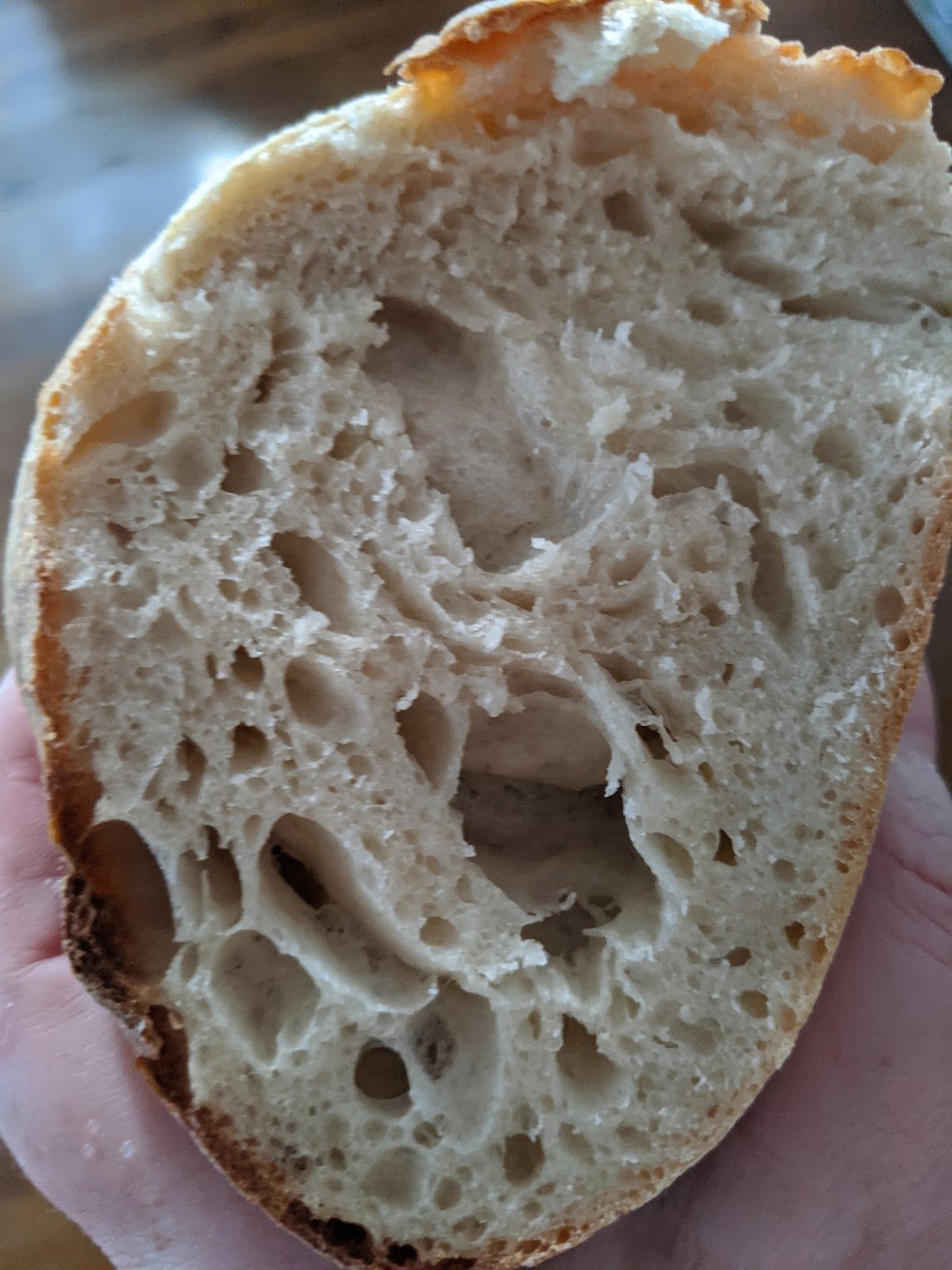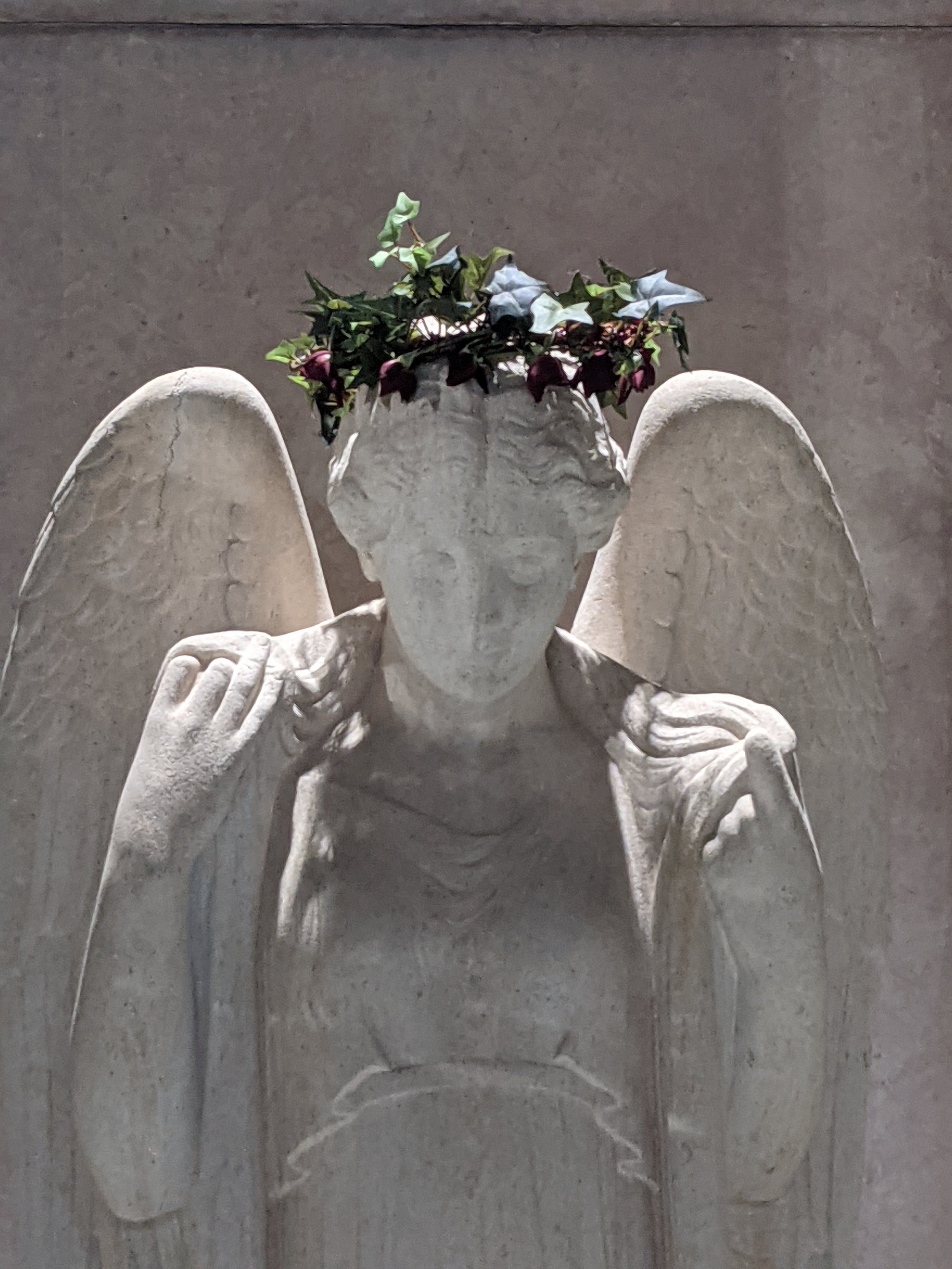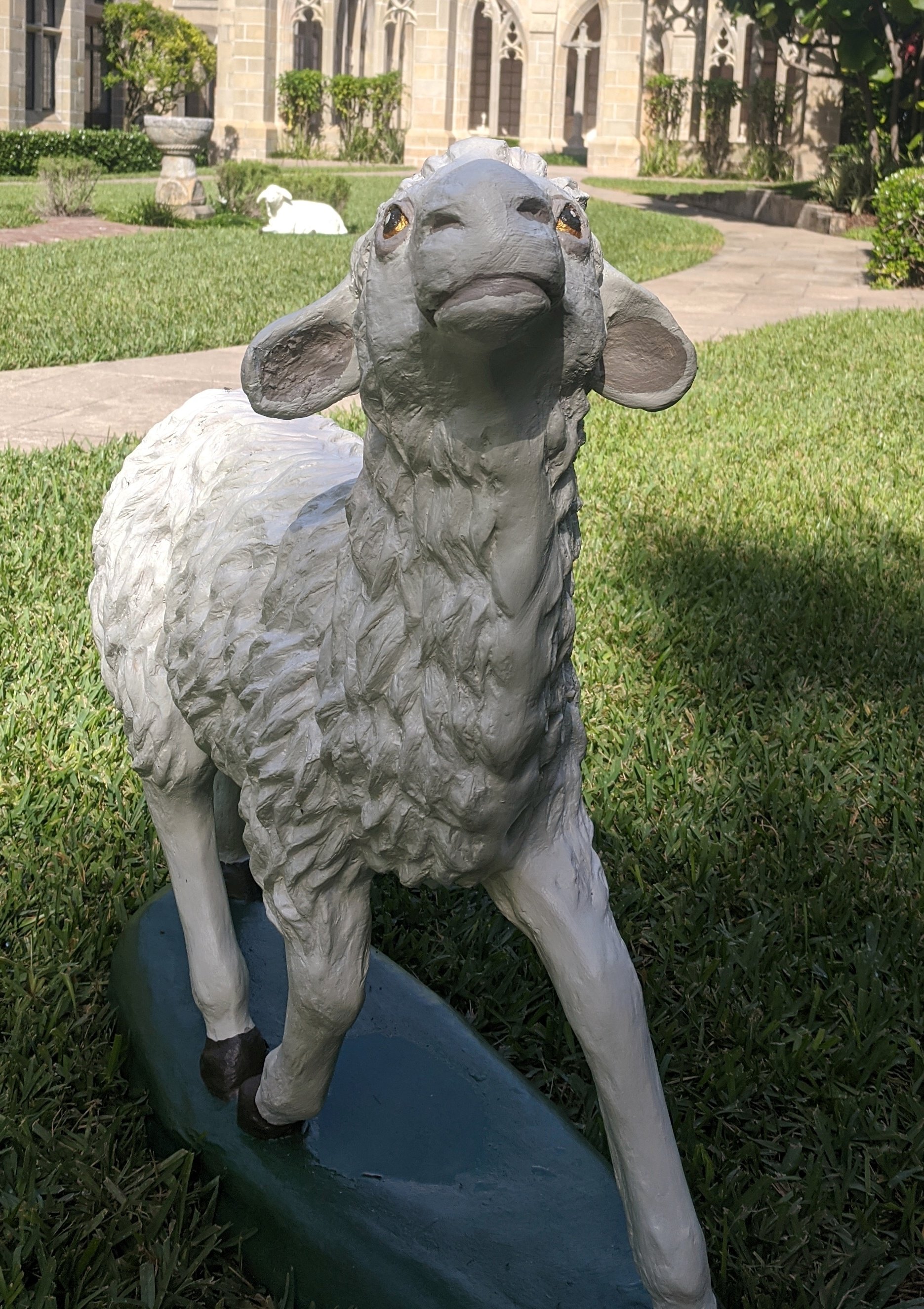You can find video of all of our live-streamed services on our YouTube page: youtube.com/@stpaulsmanhattan

An Easy Life?
I recently asked my phone what I needed to do to make my life easy. It gave me a lot of advice. Some of it was even good advice. Get enough sleep. Create a budget. Go for a walk every day.
Some of the advice was oddly specific. Use an electric toothbrush. Drink celery juice every morning. Only buy one brand of socks.
I’m pretty sure I’ll never add celery juice to my daily routine, but the rest of the tips were at least worth considering.
The real problem was the question I asked: “How can I make my life easy?” The algorithm was apparently too polite to give me the real answer.
“How can I make my life easy?”
“You can’t.”
[Image: Image: https://www.flickr.com/photos/katieharbath/4249809778]

Flesh and Blood
If you’ve been in church for the past several weeks, you’ve heard about the feeding of 5000 people with five loaves of barley bread. You’ve heard Jesus call himself the bread of life. The living bread that comes down from heaven. A new and better manna in the wilderness. And next week he’ll say it again.
We’re hearing about it a lot. Maybe this bread thing is important.

Get up and eat
Elijah is the greatest prophet of the Hebrew Bible. So what is he doing hiding in the wilderness begging God to end his life? Shouldn’t a prophet be more resilient?

Growing Up
Growing in maturity looks like being ever more fully yourself. It looks like living ever more completely into God’s will. Maturity includes strength, but it’s a strength that has no need to prove itself.
I think that’s at least part of what it means to “no longer be children.”
And I suspect that it’s that kind of maturity that allows us become again like a child. To love simply and purely. To know without doubt that we are who and what God made us to be.

That’s how much God loves us
Even our wildest imagination doesn’t get close to what we can accomplish with God’s love. I can think of no better prayer than to pray, like the epistle writer, that we will strive to comprehend what this means, that we will be rooted and grounded in love, and that we will get on with this work, because there is a whole lot of work to do out there, and God is waiting for us to join her.

Coventry
Peace has always been an aspiration of Christian life, but we haven’t always done a very good job of making it a reality. It sometimes feels like we get it wrong more often than we get it right.
I’d like to tell you one story in which I find hope. It’s grim at the beginning, but there’s light at the end of it.

Fear
“Don’t be afraid.” The words can be comforting. They’re words you might say to a child frightened by a thunderstorm. “Don’t be afraid. Don’t worry. Everything will be ok.”
But I’m not at all sure that that’s how Jesus meant those words. I think Jesus told us not to be afraid at least in part because fear itself is dangerous. Fear can make us abandon our principles. It can make us refuse to see the truth in front of us. Fear can make us do terrible things.
I’m beginning to understand “be not afraid” less as comfort and more as command. Don’t be afraid. Instead, have faith. Don’t be afraid. Instead, follow your conscience—no matter what doing so might cost you.

Baggage
Here are a few practical lessons I take from today’s Gospel reading:
First is this: The assumptions that other people make might make it harder for you to be heard, but that shouldn’t stop you from acting. Your past doesn’t control your future.
Second, we need one another. It helps to go out two by two.
Finally, we don’t have to have all our ducks in a row in order to make a difference. Trust in God. Have the courage to set out—no bread, no bag, no credit card, no strategic plan, no safety net. It won’t always work out. If it doesn’t, shake the dust off your feet and move on. But sometimes it will work out. And enough “sometimes” might just change the world.
May we each find the courage to go where God sends us. And faith enough to travel light.

A Christian Life
In a few minutes, we’ll baptize a baby, and we’ll remember our own baptisms. Baptism is a beginning. An entry onto a spiritual path. A first step into becoming more like Christ.
But how do we continue down that path? How do we live a Christian life?

Hard Times
“Do you not care that we are perishing?”
It was the cry of disciples in a storm-tossed boat on the sea of Galilee. It was the cry of people at the edge of despair, the cry of those trapped in darkness and chaos and afraid for their lives.
“Do you not care that we are perishing?”
Maybe there’s been a time when it’s been your cry as well.
“Don’t you care?”
“God, don’t you care that I’m frightened, overwhelmed, grieving, in pain? Why don’t you answer? Why don’t you do something?”
Why is this happening?

A Shrubbery
The kingdom of God, Jesus says, is like a mustard seed. A tiny seed that grows into …“the greatest of all shrubs.” Some preachers will go on and on about how amazing a mustard tree is, but as far as I can tell, that’s mostly wishful thinking
The greatest of all shrubs. It’s a bit like saying the most well-pedigreed of all mutts, or the swiftest of all donkeys, or the most gourmet bowl of oatmeal. There’s nothing wrong with mutts or donkeys or oatmeal, but “great” isn’t usually the first adjective that springs to mind to describe them.

The problem of evil
The question of why evil persists has always been one of the hardest questions to answer. I can’t give you a better answer than the book of Genesis does.
Here’s the good news. I do know that the horror movies get it wrong and the adventure movies get it right. Life is hard, evil exists, but good wins out in the end.

Sabbath
When was the last time you spent twenty-four hours resting? Not turning on the television or the computer or picking up your phone. Not mowing the lawn. Not running errands or taking out the trash. Not cooking a meal. Just resting, talking to loved ones, maybe spending some time in prayer.

Encounters with God
I don’t really need any new Christmas decorations, but I discovered one last year that tempted me. It turns out that you can buy an angel tree topper that’s advertised as “biblically accurate.” The prophet Isaiah described one such type of angel in today’s first reading: “each had six wings; with two they covered their faces, and with two they covered their feet, and with two they flew.” No wonder angels always start out by saying, “be not afraid.” Would you put a figure like that on top of your tree?

Pentecost
Pentecost is the most un-Episcopalian of feast days. Most of us are skeptical of stories of fire from heaven. If we hear a sound like the rush of a violent wind, we assume that it is in fact a violent wind. (This is Kansas, after all.) And if we decide to do anything special to celebrate Pentecost, wearing red is generally good enough. There’s absolutely no need to speak in tongues.
This approach to Pentecost suits my own temperament. But sometimes I wonder if we’re missing out.

Unity
We human beings aren’t very good at unity. We want connection, we want to be understood, but we too often define ourselves by the things that make us different from one another. “He’s nice enough, but he’s a foreigner.” “Why does she dress like that?” “He’s a Democrat.” “She’s a Republican.” “I just don’t get it.” Politics, language, appearance. All these things divide us.
Smaller things too. What would happen if I got up in this pulpit one Sunday and started my sermon by chanting, “Rock chalk, Jayhawk, K.U.!” (I thought about trying it today to make a point, but decided I didn’t dare.)

Blah blah blah blah Love
One Sunday, a preacher brought his two children to church with him, a girl and a boy. The boy slept through the entire sermon, and his sister decided that this was the perfect chance to get her brother into trouble. And so at lunch she rather primly asked him what he thought the main point of the sermon was. She had him. Or did she? It turns out the boy was prepared. He replied, “It was the same as always. Blah blah blah blah love. Blah blah blah blah love.”
He wasn’t wrong.

What is to prevent?
One question that came up again and again in the first years of the Church was the question of just how far God’s love could reach, of how broad this new community should be. Who was in and who was out? Again and again they asked the question: “Can we include this person? This stranger? This foreigner? This person whose appearance and speech and habits are so different from everything we know?” Again and again they asked. And again and again the Holy Spirit taught them that the answer was “yes.” Yes, God’s love could reach so far.

Sheeple
Sheep aren’t exactly admired. They’re seen as stupid, dependent, easily frightened, prone to falling into ditches and getting stuck. And they probably don’t smell very good. Sheep stand around all day and eat grass. No sheep has ever been a hero, or written a great poem, or held a deep thought.
All this bad sheep PR creates some cognitive dissonance for people of faith, though, doesn’t it? I mean, think about it. Today we talk about Jesus as the Good Shepherd, the one who lays down his life for the sheep. But if Jesus is the shepherd, what does that make us?
We might as well face it. It makes us sheep.

Easter Questions
A couple of weeks ago, I found myself volunteering with a group of people I’d never met before. They were all church-goers, but not Episcopalians. I knew this morning’s sermon was coming up, and I was looking for ideas. And so I asked them what questions they had about Easter. One wanted to know what Jesus meant when he said, “It is finished” from the cross. Another asked why “Good Friday” is called “Good.” A third said, “what’s up with the eggs and bunnies?”

